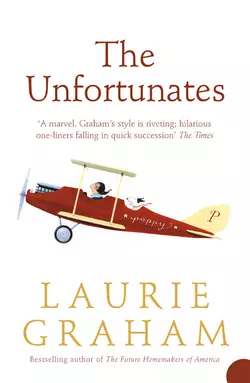The Unfortunates

Laurie Graham
Тип: электронная книга
Жанр: Современная зарубежная литература
Язык: на английском языке
Стоимость: 1151.20 ₽
Статус: В продаже
Издательство: HarperCollins
Дата публикации: 16.04.2024
Отзывы: Пока нет Добавить отзыв
О книге: The ebook edition of a classic novel from the bestselling author of ‘The Future Homemakers of America’.What hope is there for Poppy Minkel? She has kinky hair, out-sticking ears, too yellow a neck and an appetite for fun, and her mother Dora despairs of ever finding her a husband, despite the Minkel′s Mustard fortune that seasons these dubious attractions. When Daddy disappears, Poppy′s tendency to the unusual is quietly allowed to flourish. World War I opens new horizons. With never a moment of self-doubt, she invents her own extraordinary life in step with the unfolding century.